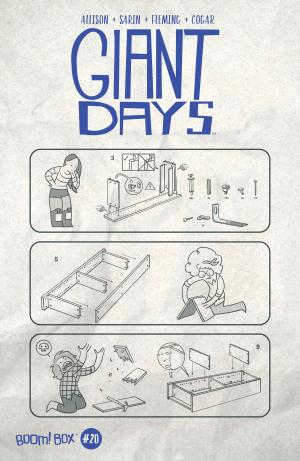| Author: | Bill Etem | ISBN: | 9780463086247 |
| Publisher: | Bill Etem | Publication: | May 6, 2018 |
| Imprint: | Smashwords Edition | Language: | English |
| Author: | Bill Etem |
| ISBN: | 9780463086247 |
| Publisher: | Bill Etem |
| Publication: | May 6, 2018 |
| Imprint: | Smashwords Edition |
| Language: | English |
This is a set in a parallel universe where we have kindergarten kids cramming their heads full of advanced math and physics. With math and physics students aren't tormented by the question: How do I know this stuff is true? They are tormented by a suspicion saying they are enduring lots of mental anguish studying something which will never reward them for all their hard work.
Is K-12 education in the USA a big joke? Do American high schools graduate people who are inept at logic and argumentation? My theory is that kids could learn advanced math and advanced physics and advanced lots of stuff in K-12 but they are held back by bad schools. If a kid spends just 20 minutes per day working on math work-sheets, 5 days a week - that's 100 minutes per week - and if he keeps this up for 12 years, it would be insane to think, provided he has competent teachers to help him when he is confused, it would be insane to think the average student couldn't learn advanced math and advanced physics. Just work about 2,000 worksheets over 12 years and you can't fail to learn advanced math and advanced physics and advanced engineering and advanced finance. You can't fail! You might have to bribe kids with more play time to get them to focus for 20 minutes per day on their work sheets, and you'd have to give them some sort of incentive like $$$ to inspire them to keep up with their worksheets during summer vacation, but that's OK, just get them to focus. Of course Math is best taught one-on-one. One teacher, one student. This prevents the kid from day dreaming. Keeps him focused on the theories and problems being discussed. Even if a teacher can only spend 5 minutes per day explaining new material to a kid, well in 12 years the kid will knows tons of advanced math and physics. And of course you could pay 6th grade kids to teach the 1st graders, and pay 7th graders to give one-on-one instruction to 2nd graders etc., etc., given the shortage of adult teachers. Anyway, it's interesting to speculate how much math, or how much physics or constitutional law or medicine or theology or comedy or music a person could learn in 365 days if someone was holding a gun to his head, you know if he was supremely motivated to apply himself with 100% effort.
This is a set in a parallel universe where we have kindergarten kids cramming their heads full of advanced math and physics. With math and physics students aren't tormented by the question: How do I know this stuff is true? They are tormented by a suspicion saying they are enduring lots of mental anguish studying something which will never reward them for all their hard work.
Is K-12 education in the USA a big joke? Do American high schools graduate people who are inept at logic and argumentation? My theory is that kids could learn advanced math and advanced physics and advanced lots of stuff in K-12 but they are held back by bad schools. If a kid spends just 20 minutes per day working on math work-sheets, 5 days a week - that's 100 minutes per week - and if he keeps this up for 12 years, it would be insane to think, provided he has competent teachers to help him when he is confused, it would be insane to think the average student couldn't learn advanced math and advanced physics. Just work about 2,000 worksheets over 12 years and you can't fail to learn advanced math and advanced physics and advanced engineering and advanced finance. You can't fail! You might have to bribe kids with more play time to get them to focus for 20 minutes per day on their work sheets, and you'd have to give them some sort of incentive like $$$ to inspire them to keep up with their worksheets during summer vacation, but that's OK, just get them to focus. Of course Math is best taught one-on-one. One teacher, one student. This prevents the kid from day dreaming. Keeps him focused on the theories and problems being discussed. Even if a teacher can only spend 5 minutes per day explaining new material to a kid, well in 12 years the kid will knows tons of advanced math and physics. And of course you could pay 6th grade kids to teach the 1st graders, and pay 7th graders to give one-on-one instruction to 2nd graders etc., etc., given the shortage of adult teachers. Anyway, it's interesting to speculate how much math, or how much physics or constitutional law or medicine or theology or comedy or music a person could learn in 365 days if someone was holding a gun to his head, you know if he was supremely motivated to apply himself with 100% effort.















